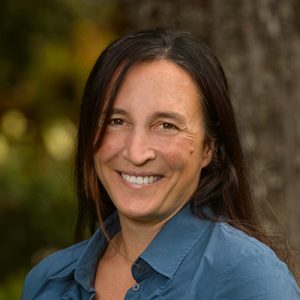
Darcy Pickard
Sr. Statistician | Sr. Systems Ecologist | EA/Cumulative Effects Assessment Lead
Key skills: sampling design, design of experiment, simulation modeling, data analysis, decision analysis, and workshop facilitation.
Darcy’s goal is to bring statistical rigour to challenging environmental problems in freshwater, marine, and terrestrial ecosystems. As a team lead, she uses systematic and transparent approaches to help clients explicitly address uncertainty, thus enabling scientifically neutral evaluation of options. Darcy is a Professional Statistician, with over 15 years of experience. Her areas of expertise include: adaptive management, cumulative effects assessment, environmental assessment, development of indicators and thresholds, design of monitoring and evaluation programs, data analysis, technical review, simulation modeling, and technical facilitation. Darcy enjoys working with people and helping to bridge the gap between biologists and statisticians. She believes it is very important to understand the data first hand and makes it a priority to get out in the field and get her hands dirty. In addition to her statistical expertise and facilitation experience, Darcy is educated in ecology and field techniques making her uniquely suited to integrate across the two domains.
A cumulative effects mindset is an important development in the way we think of environmental assessment problems. ESSA strives to bring this comprehensive approach to projects. In addition, it is important to effectively communicate this information to a broad audience. Darcy leads ESSA’s cumulative effects assessment team and has been developing visual approaches (e.g., report cards or snapshots) for communication of cumulative effects assessment data for watersheds, salmon freshwater and estuary habitat data, salmon populations, tailed frogs, and other applications. Darcy also: led the quantitative cumulative effects analysis for the Government of Canada’s Inquiry into the Decline of Sockeye Salmon in the Fraser River; led the cumulative effects assessment of the Skeena estuary in Northern BC on behalf of the Pacific Salmon Foundation and supported the development of B.C.’s cumulative effects framework. In addition to leading ESSA’s environmental and cumulative effects assessment service area, Darcy manages and contributes to projects focused on monitoring design, program-level review, and facilitation. She has extensive experience supporting large, complex restoration/reclamation projects which typically involve: facilitation, monitoring design, and statistical guidance. Recent experience includes 1) Designing the adaptive management framework and long term plot-network effectiveness monitoring plan for oil-sands reclamation guidelines (2) Designing an integrated, system-wide monitoring program for: fish, wildlife, vegetation, and physical processes for Trinity River Restoration Program (TRRP) in California. 3) Serving as a special advisor supporting the Platte River Recovery Implementation Program in Nebraska. Further examples of recent projects calling for Darcy’s skills in data synthesis and statistical analysis, simulation modeling; and facilitation include review and refinement of B.C.’s Forest and Range Evaluation Program; wildlife resource value effectiveness evaluations; of a range of Fisheries and Oceans Canada’s monitoring, verification, and catch estimation programs, and estimation of entrainment and impingement data from nuclear generating stations.
Since joining ESSA in 2005, Darcy has successfully applied her analytical and facilitation skills to over 150 projects throughout Canada and the United States, for a wide variety of clients and is author/coauthor of numerous technical reports and guidance documents. In addition, she taught statistics for the Department of Ecological Restoration at the British Columbia Institute of Technology (BCIT) for 3 years. Darcy holds a Bachelor of Science in Statistics with a minor in Ecology and a Master of Science in Statistics from Simon Fraser University.
Darcy is particularly interested in the potential of community-based monitoring and working towards making this a more viable and rigorous approach. She has provided guidance to and volunteered for the Hummingbird Monitoring Network; led the development of B.C.’s Watershed Status Evaluation Protocol; and recently contributed to a study to help Toronto’s Fatal Light Awareness Program evaluate key uncertainties in their urban bird mortality monitoring programs. She looks forward to supporting other community based efforts in her new home in Ontario.
In her free time, Darcy can be found playing football or exploring the world with her twin girls.
